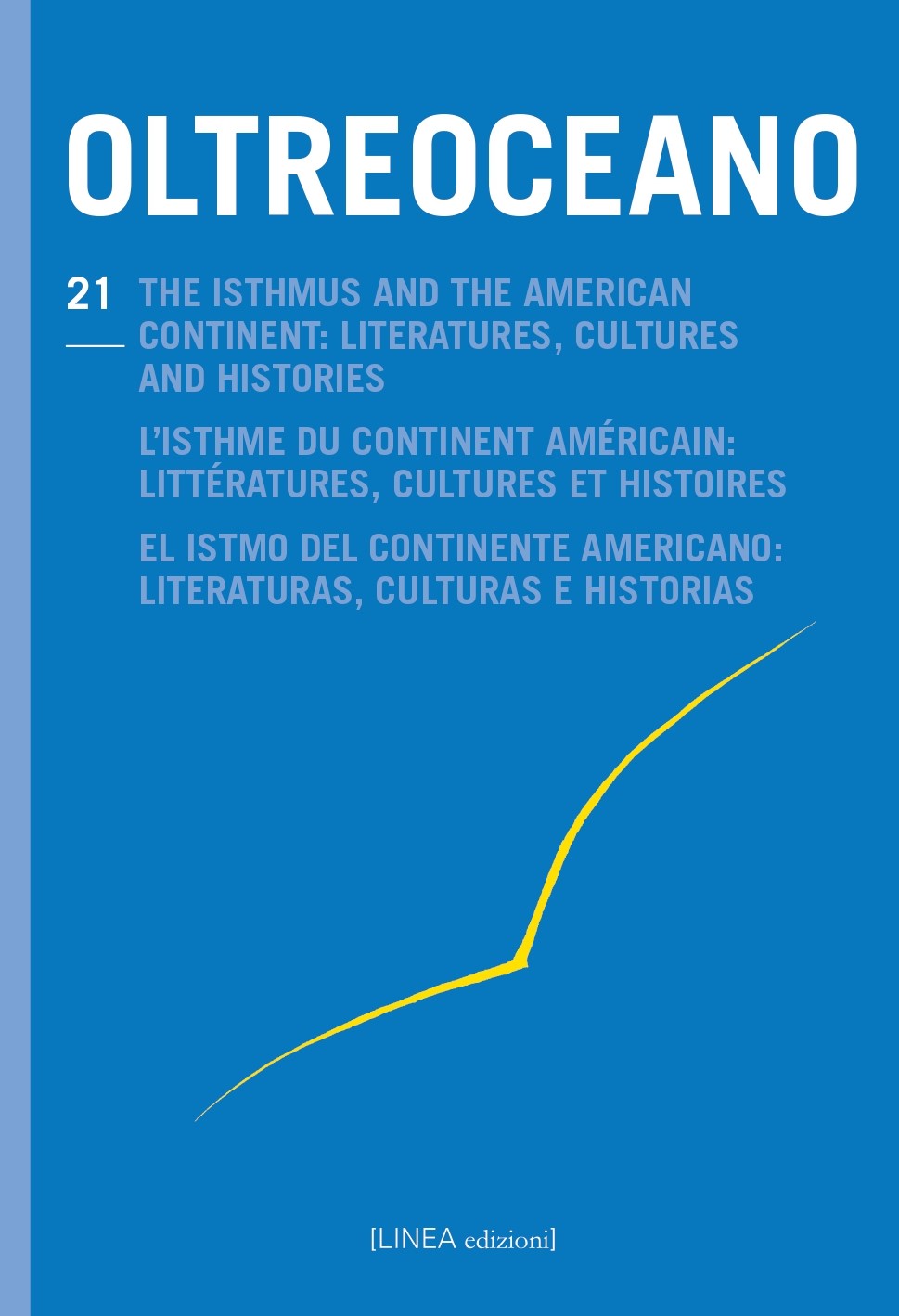Across Water, Land, and Difference. Language and Cultural Contact in Samaná
DOI:
https://doi.org/10.53154/Oltreoceano68Keywords:
Haiti, samaná peninsula, language, African Americans, migrationAbstract
La lingua attraverso l’acqua: l’inglese afroamericano e il contatto in Samána
Nella prima metà del diciannovesimo secolo, prima dell’abolizione della schiavitù negli Stati Uniti, 6.000 afroamericani migrarono a Haiti. Haiti rappresentò una storia di successo e un faro di speranza per milioni di persone, in quanto prima repubblica nera del pianeta, prima nazione al mondo ad abolire la schiavitù e seconda colonia nelle Americhe a ottenere l’indipendenza. Motivati dalla prospettiva di un futuro migliore, gli afroamericani che migravano lì, fuggivano da espropriazioni, violenza razziale, e opportunità economiche limitate. L’articolo esplora aspetti della vita sociale nelle comunità create da migranti afroamericani e dai loro discendenti in uno dei luoghi dove si insediarono, la penisola Samaná (parte dell’odierna Repubblica Domenicana), dove mantennero la loro eredità culturale, inclusa la lingua inglese afroamericana, per più di 150 anni. Il saggio intende il concetto di istmo, o ponte, come una piattaforma concettuale per ri-mappare narrazioni erudite della lingua nel tessuto sociale nella penisola Samaná e nelle altre comunità migranti della regione. Un’attenzione particolare sarà rivolta alla documentazione e teorizzazione delle dinamiche di contatto che si svilupparono tra diversi gruppi etnici della penisola e le loro relazioni con i paradigmi di formazione della comunità e memoria sociale.
Downloads
References
Arroyo, J. (2016): Transculturation, syncretism, and hybridity. In Y. Martínez San Miguel, B. Sifuentes-Jáuregui, and M. Belausteguigoitia (Eds.), Critical terms in Caribbean and Latin American thought (pp. 133-144). New York: Palgrave.
Bailey, G. (2001): The relationship between African American Vernacular English and White vernaculars in the American South. In S. L. Lanehart (Ed.), Sociocultural and Historical Contexts of African American English (pp. 53-92). Amsterdam: John Benjamins.
Baldrich Beauregard, E. (2007): El imperio de Napoleón Bonaparte en Samaná. Clío 76, 173, pp. 53-66.
Commission of Inquiry to Santo Domingo, Dominican Republic (1871): Report. Washington DC: Government Printing Office.
Davis, M. (1981): Himnos y anthems (“coros”) de los “Americanos” de Samaná. Boletin del Museo del Hombre Dominicano 10, 16, pp. 85-107.
Féliz Féliz, W. (2008): El pueblo de Samaná en 1876. Clío 77, 176, pp. 49-80.
Fugitive Slaves - Turks and Caicos Islands (1821): The New York Public Library Digital Collections. Retrieved from https://digitalcollections.nypl.org/items/afdc5490-e588-0130-95ee-58d385a7bbd0 (Last accessed 01/08/2022).
Gorlach, M. (2002): Still More Englishes. Philadelphia: John Benjamins.
Holm, J. (1989): Pidgins and Creoles: Reference and Survey. Cambridge: Cambridge University Press.
Lipski, J. (2005): History of Afro-Hispanic Language. Cambridge: Cambridge University Press.
Mann-Hamilton, R. (2016): What the Tides May Bring: Political “Tigueraje”: Dispossession and Popular Dissent in Samaná, Dominican Republic. Graduate Center: City University of New York.
Poplack, S. & Tagliamonte, S. (2004): Back to the present: Verbal -s in the (African American) English Diaspora. In R. Hickey (Ed.), Legacies of Colonial English (pp. 203-223). Cambridge: Cambridge University Press.
Schneider, E. (2008): Accommodation vs. Identity: a Response to Trudgill. Language in Society, 37, 2, pp. 262-267.
Singler, J. (2007): Substrate Influence in Creole Formation. Journal of Pidgin and Creole Languages, 22, 1, pp. 123-148.
Smith, E. (1987): Early Afro-American Presence on the Island of Hispaniola. The Journal of Negro History 72, 1-2, pp. 33-41.
Spears, A. (2010): On Shallow Grammar: African American English and the critique of exceptionalism. In J. Kleifgen & G. Bond (Eds.), The Languages of Africa and the Diaspora (pp. 231-248). Clevedon: Multilingual Matters.
Valdez, J. (2010): Samaná (República Dominicana): Baluarte del crillismo caribeño o campo de contacto lingüístico-cultural? Estudios, 18, 35, pp. 29-48.
Vigo, J. (1981): Prospectus: Language and Ethnicity in a Dominican Community. New York: José A. Vigo Papers.
Walicek, D. (2007): Farther South: Speaking American, the Language of Migration in Samaná. In J. Adams; M. Bibler & C. Accilien (Eds.), Just Below South (pp. 95-120). Charlottesville: University of Virginia Press.
Wolfram, W. (2003): Dialect enclaves in the South. In S. Nagle & S. Sanders (Eds.), Language in the New South (pp. 141-158). Cambridge: Cambridge University Press.
Downloads
Published
How to Cite
Issue
Section
License

This work is licensed under a Creative Commons Attribution-NonCommercial-ShareAlike 4.0 International License.
The authors undertake to comply with the following conditions, which are considered accepted at the time of submission of their contributions.
The sending of a text implies that it is unpublished and not submitted to be published elsewhere.
1. If accepted, the author shall confer on the publisher the right to publish and distribute it both in paper form and in the online electronic edition. The published articles will be downloadable and made available in open access.
2. Provided that it correctly indicates that the first publication took place in the journal Oltreoceano. Rivista sulle migrazioni the author has the right to: a) reproduce the article in separate extracts or collected in a volume; b) publish the article on their personal website or teaching site provided that these sites are of a non-commercial nature; c) deposit the article in online archives of a non-commercial nature, linked to the institution they belong to or as part of projects for the non-commercial dissemination and open access of scientific works.
The use of contributions by third parties, for commercial or otherwise unauthorized purposes, is not allowed. The publisher declines all responsibility for the unauthorized use of the material published in the journal.












